45 years ago today, Monty Python’s Life of Brian was released in theaters. Featuring troupe leader Graham Chapman as Brian Cohen, born in the stable adjacent to Jesus at Bethlehem and confusing the residents of the holy land into thinking he is the Messiah, the film was a satire on many Christian doctrines. However at the root of it, it’s just a historical setting for the group’s hilarious and innovative comedic stylings. READ all about this legendary film… (1979)
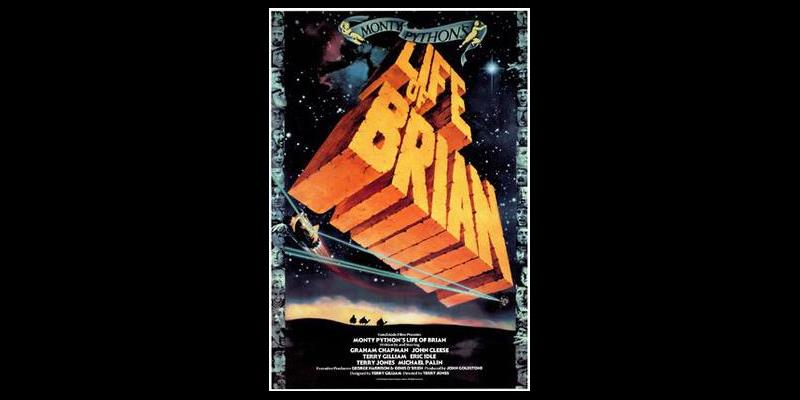
The film was a box office success, and the highest-grossing of any British film in the United States that year. It has remained popular and has been named the greatest comedy film of all time by several magazines and television networks, and it later received a 96% rating on Rotten Tomatoes.
Notable scenes include Brian’s attempts at spreading anti-Roman graffiti to prove himself capable of entering the resistance group the People’s Front of Judea (not to be confused, as is done constantly in the film, with the Judean People’s Front). He is caught by legionaries, but the complexity of Latin’s verb tenses and the shoddy grammar of Brian’s graffiti force the guards to correct Brian’s writing before forgetting why they approached him in the first place.
The most famous, perhaps, of all Monty Python’s musical work—Always Look on the Bright Side of Life, debuted in the film.
Reviews from critics were mostly positive on the film’s release. Movie historian Leonard Maltin reported “This will probably offend every creed and denomination equally, but it shouldn’t. The funniest and most sustained feature from Britain’s bad boys.” Vincent Canby of The New York Times called the film “the foulest-spoken biblical epic ever made, as well as the best-humored—a nonstop orgy of assaults, not on anyone’s virtue, but on the funny bone. It makes no difference that some of the routines fall flat because there are always others coming along immediately after that succeed.”
Some countries, including Ireland and Norway, banned its showing, and in a few of these, such as Italy, bans lasted over a decade. The filmmakers used the notoriety to promote the film, with posters in Sweden reading, “So funny it was banned in Norway!”
MORE Good News on this Day:
- Fantasmagorie, the first animated cartoon, created by Émile Cohl, is shown in Paris (1908)
- Narcotics Anonymous held its first meeting in Southern California (1953)
- Happy 63rd Birthday to actor-director-activist-philanthropist Sean Penn (1960)
- The first balloon to cross the Atlantic Ocean, Double Eagle II, landed near Paris, 137 hours after leaving Presque Isle, Maine (1978)
- Thousands of people worldwide observed celebrations of the Harmonic Convergence, (on the 16th and 17th), construed from Mayan writings, as heralding the start of a new, purer age of humankind, as Mercury, Venus, and Mars aligned near the sun (1987)
- Michael Phelps won the Men’s 4x100m medley relay, becoming the first Olympian to win eight gold medals in the same Olympics (2008)
Happy Birthday to Robert De Niro, who was born in New York City 81 years ago today. The actor has appeared in over 100 films and earned 7 Academy Award nominations, winning twice—for Best Actor in Raging Bull (directed by Martin Scorsese), and for his break-out supporting role (at age 30) as the young Vito Corleone in Coppola’s epic sequel The Godfather Part II.

As a boy, he found relief from his shyness through performing, and dropped out of school at age 16 to pursue acting. “When I was around 18,” De Niro once said, “I was looking at a TV show and I said, ‘If these actors are making a living at it, and they’re not really that good, I can’t do any worse than them.'”
In 1973, De Niro began collaborating with Martin Scorsese when he appeared in the crime film Mean Streets, co-starring Harvey Keitel. Although De Niro was offered a choice of roles, Scorsese wanted De Niro to play “Johnny Boy” Civello, a small-time criminal working his way up into a local mob. Mean Streets would spawn a 5-decade-long association that produced critically acclaimed films.
The two have worked together in nine films in total, including Taxi Driver, Cape Fear, Casino, and Goodfellas. They teamed up again in 2019 with The Irishman, a biographical crime film co-starring De Niro as a hitman and Al Pacino as Jimmy Hoffa. (1943)
238 years ago today, the American folk hero Davy Crockett was born. An outstanding frontiersman, soldier in the Texas Revolution, and Tennessee congressman, he was known as the “King of the Wild Frontier”.
He actually never wore a raccoon skin cap until it was given to him by political rivals, who tried to lampoon him as an uneducated country-bumpkin, but being a confident character he put on the hat as he set off to Texas to explore new opportunities for wealth and leadership, but died in the battle over the Alamo. WATCH a short bio… (1786)
54 years ago today, the Venera 7 spacecraft was launched by the Soviet Union, and began traveling toward Venus.

Four months later, it became the first spacecraft to soft land on another planet and the first to successfully transmit data from the surface. After its parachute started to fail it stuck Venus harder than planned. The probe appeared to go silent on impact, but a few weeks later, upon a review of the tapes, 23 minutes of very weak signals were found on them. The probe transmitted the temperature at the surface of Venus to be 475 °C (887 °F) making it inhospitable to humans. (1970)
And, on this day in 1907, Pike Place Market, Seattle’s iconic tourist destination and one of the longest-running farmers markets in the U.S., opened.
With more than 10 million visitors exploring the 9-acre registered historic district annually, it is home to 500+ small independent businesses, including farmers, craftspeople, butchers, fish markets, shops, bakeries, restaurants, and specialty food stores. Additionally, there are more than 300 low-income housing units in the bustling year-round market, many of which are above popular storefronts. The City chartered the Pike Place Market Preservation and Development Authority, a nonprofit public corporation, to preserve, rehabilitate and protect buildings within the Market, increase the opportunities for farm and food retailing, support small and marginal businesses, and provide services for low-income individuals. WATCH its famous Fish Throwing ritual…
Also, 65 years ago today, the American jazz trumpeter Miles Davis released Kind of Blue, the highly influential best-selling jazz record of all time. Regarded by many critics as one the greatest albums ever composed, Davis’s masterpiece influenced artists in genres from jazz to rock, to classical. Having sold nearly 5 million copies, the certified quadruple platinum LP was based on improvisation around scales—rather than chord progressions like blues or pop music—and was revolutionary in its mapping of uncharted territory, creating a new language for music based on the modal theory.
Several of the musicians playing with Miles Davis on the album are now legendary in their own right: tenor saxophonist John Coltrane; alto saxophonist Julian ‘Cannonball’ Adderley; pianists Bill Evans and Wynton Kelly; bassist Paul Chambers; and drummer Jimmy Cobb.
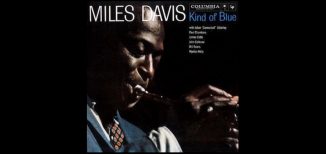
As was Davis’s penchant, he called for almost no rehearsal and the musicians had little idea what they were to record. As described in the original liner notes by pianist Bill Evans, Davis had only given the band sketches of scales and melody lines on which to improvise. Davis gave brief instructions in studio for each of the five tracks. The persistent legend that the entire album was recorded in one pass is untrue. It was, however, recorded in two days. Coltrane said it was music “made in heaven”—a gift to the world. (1959)
Miles, who was born in Illinois, died in 1991 at the age of 65 and was buried with one of his trumpets in a cemetery in The Bronx near Duke Ellington’s gravesite. HEAR the opening track, So What…
On this day in 1945, Indonesia declared its Independence from the Netherlands. It was 10:00 AM on a Friday that Mohammad Hatta and Sukarno went on the radio at the latter’s house in central Jakarta, and announced that Indonesia would no longer accept orders, laws, or jurisdiction issued by Holland, sparking the 4-year Indonesian Revolution of Independence.
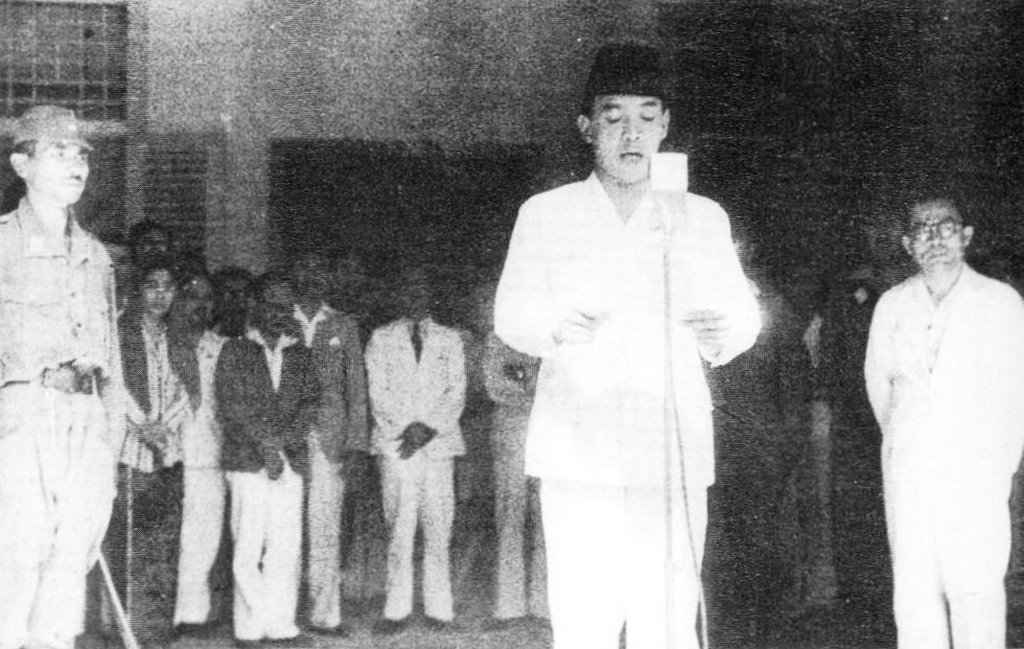
Throughout the 1920s and 1930s, three Indonesian revolutionaries, Mohammad Hatta, Sukarno, and Sutan Sjahrir, repeatedly tried to build a revolutionary movement that looked to unite all of the Dutch East Indies, and not at the sometimes-local allegiance to a particular island. They formed political parties or revolutionary groups aimed at achieving independence through non-cooperation with the Dutch, and each spent several stints in prison and exile.
The detention of these nationalist figures effectively ended the non-cooperation movement, and in December 1935 the moderate Indonesian National Union and another party called Budi Utomo merged to form the Great Indonesia Party (Parindra), which aimed to work with the Dutch to achieve Indonesian independence.
After the outbreak of the Second World War, the Dutch were in no position to spend political effort to reform the governmental situation on Indonesia before the Japanese swept in and took control of the whole archipelago. There, administration of the major islands was managed by Japanese troops, but as the tide turned against Japan’s expansion across Asia, the need to free up those forces saw Hatta, Sukarno, and Sjahrir invited to return by the Japanese, who sought to create an independence movement through the old revolutionaries.
The Japanese decided to grant Indonesian independence to create problems for the Dutch when they reoccupied their colony. At a meeting in Singapore at the end of July, it was decided that Java would become independent at the end of September, followed by other areas. After internal political squabbling about the best way to go about it, Sukarno and Hatta, believed by some as the only men with enough gravitas to make the declaration, read aloud a very simple message:
“We the people of Indonesia hereby declare the independence of Indonesia. Matters concerning the transfer of power and other matters will be executed in an orderly manner and in the shortest possible time.”
SHARE the Milestones, Memories, and Music…


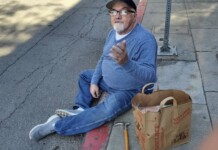

















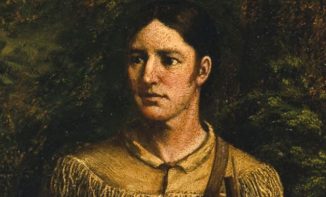
When NA first came to Canada in the 60s, it was an illegal organization. According to narcotics law it was illegal for more than two addicts to be in the same place at the same time. That has changed of course, nowadays they are even protected under the Canadian Charter of Rights and Freedoms by the ‘freedom of peaceful assembly’ clause.
[…] By Good News Network […]